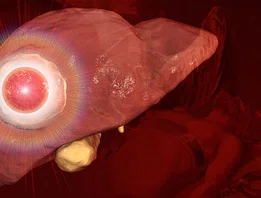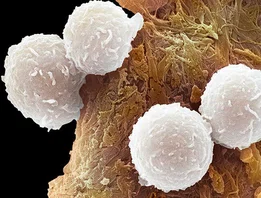


Below is a perspective on the patients’ experience of clinical trials based on conversations with Tetsuo Ashizawa, MD, the Harriet and Joe B. Foster Distinguished Chair in Neurosciences and professor in the Stanley H. Appel Department of Neurology at Houston Methodist. Ashizawa has performed laboratory and clinical research on several neurogenetic disorders, including hereditary cerebellar ataxias, multiple system atrophy, cerebellar type Friedreich’s ataxia, myotonic dystrophy, Facioscapulohumeral muscular dystrophy, limb girdle muscular dystrophy, Huntington’s disease and Fragile X associated tremor ataxia syndrome during his 40-year academic career. Furthermore, Ashizawa has participated in more than 20 clinical trials (which include symptomatic trials) over the last 20 years.
Physicians, researchers and hospital administrators need to be aware of the patients’ perspective of clinical trials, how they view the clinical trials, what their concerns are and the legal issues and discriminations that they may face based on their genetic information. There are many sorts of legal issues that pose as a source of confusion and complication. In the United States, the Health Insurance Portability and Accountability Act of 1996 (HIPAA) was enacted to protect personal health information. When the genetic information of a patient, such as a patient suffering from spinocerebellar ataxia is available, insurance companies can use this information to discriminate against the patient.
Currently, the Genetic Information Non-discrimination Act (GINA) prohibits discrimination against patients only with respect to health insurance and employment. However, GINA does not protect patients from discrimination from disability, life, and other types of insurance – which is one of GINA’s shortcomings. Hence, the patients’ interest is not fully protected, which is a significant challenge.

Tetsuo Ashizawa, MD
Professor of neurology at Houston Methodist
Moreover, many patients and at-risk relatives suffer from psychological issues such as the fear of knowing their genetic status. According to Ashizawa, “Not everybody wants to know their own death-bed scene on a crystal ball. There is enormous fear around genetic testing. Many times, a patient when facing the proposition of genetic testing begins to wonder if they are going to be like their brother or father, especially when there is precedence of genetic disease in the family.”
On a positive note, the fear of genetic testing can be a source of motivation for patients to participate in clinical trials because these potentially enhance their likelihood of survival. The typical attitude of patients towards clinical trials varies. Some are quite averse and initially opposed to the idea . However, once they begin to see symptoms, they might change their mind and decide to participate in the clinical trials. On the other hand, there are individuals from organizations such as patient support groups who are highly supportive of clinical trials and eager participants.
Not everybody wants to know their own death-bed scene on a crystal ball. There is enormous fear around genetic testing. Many times, a patient when facing the proposition of genetic testing begins to wonder if they are going to be like their brother or father, especially when there is precedence of genetic disease in the family.”
Tetsuo Ashizawa, MD
Professor of neurology at Houston Methodist
Feeling depressed or suicidal is quite possible for patients who may have a 50-90% chance of inheriting a fatal disease. Genetic counsellors strongly encourage patients to keep their genetic information private and not disclose this sensitive information to individuals outside of their immediate family. There is a strong social stigma attached to these situations even when symptoms are not noticeable, and knowledge of their genetic condition can affect chances of marriage, social engagements, etc. There are many social, legal and ethical implications that, taken together, are tremendous issues that affect the patients on an individual level. Apart from GINA, there is also the American Disability Act (ADA) that protects patients from being discriminated by employers based on their disabilities. However, for progressive diseases, symptoms become increasingly obvious with time and, eventually, it becomes a challenge for the ADA to provide protection under those circumstances.
An interesting case in point is Nancy Wexler, PhD, professor of Neuropsychology in the Departments of Neurology and Psychiatry at the Columbia University College of Physicians and Surgeons, who has done a significant amount of work on Huntington’s disease which eventually led to the identification of the causative gene. Ironically, Wexler herself carried the gene, but kept this information private for years and only recently has openly discussed her condition. Wexler, now 76, had family members that suffered and died from Huntington’s disease and has raised millions of dollars for research on Huntington’s. She serves as an important example for many who are struggling with the notion of how to embrace a fatal disease and how to live with symptoms while maintaining a positive outlook.
Prior to participating in clinical trials, patients are routinely provided the Informed Consent Form which includes information on the background of the disease in question, risks and possible adverse events, and how to protect genetic and other personalized information. The likelihood of success of the clinical trials is not discussed because the purpose of the clinical trials is ultimately to understand and decipher precisely that.
The question of whether to participate in clinical trials and/or undergo genetic testing can be a difficult one for patients. Access to greater amounts of information and awareness on this subject can alleviate the confusion and complications surrounding this important facet of medical research.
Abanti Chattopadhyay, PhD, April 2022
Related Articles









